Thousands of people turned up to Victoria Park last night to commemorate the 29th anniversary of the Tiananmen Square massacre.
Speaking to the crowd at the end of last night’s candlelight vigil, Albert Ho — the chairman for the Hong Kong Alliance in Support of Patriotic Democratic Movements in China, which organizes the event — announced that around 115,000 people had attended.
The turnout was slightly higher than the 110,000 people who turned up last year, with all six football pitches in the park completely full.
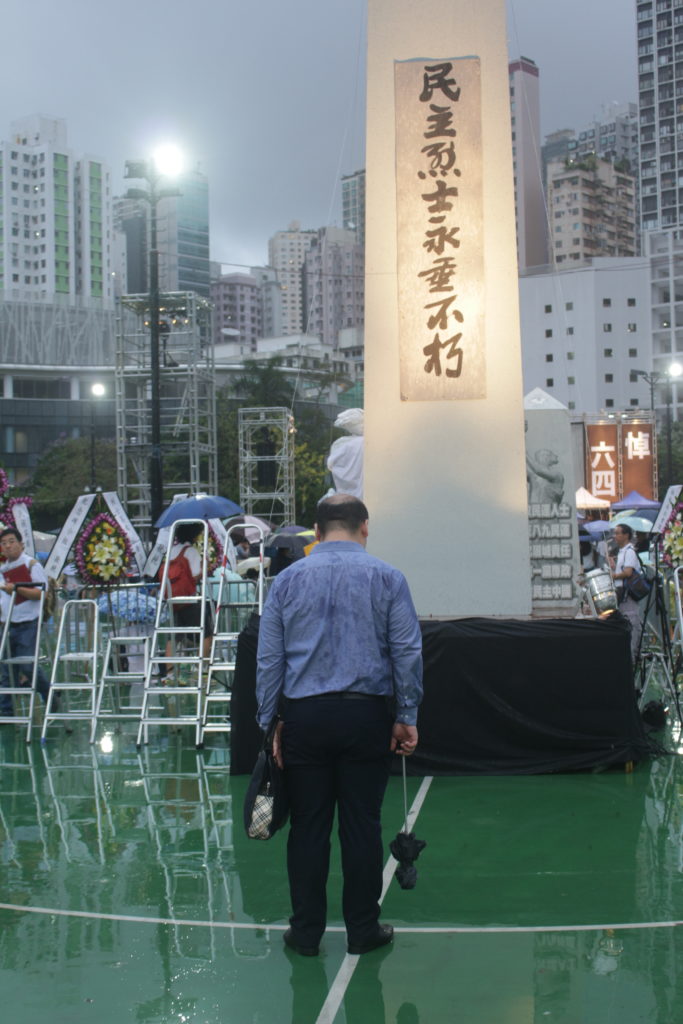
Police, however, reported that only 17,000 people attended the event, down from last year’s police estimate of 18,000.
The sombre ceremony included speeches, a eulogy for the victims, a moment of silence, video presentations, and tributes to Nobel Peace Prize laureate Liu Xiaobo, who died last year ,and to his wife Liu Xia, who remains under house arrest.

Attendees chanted political slogans calling for the end of one-party rule in the mainland, and for the release of activists and human rights lawyers who have been jailed in China.
The higher than expected turnout was good news for the event’s organizers who feared that heavy rain would deter people from attending.
News of the increased turnout was also welcome given that attendance had been decreasing in recent years, particularly among the city’s students with student unions boycotting the event, and other fringe groups holding their own vigils.
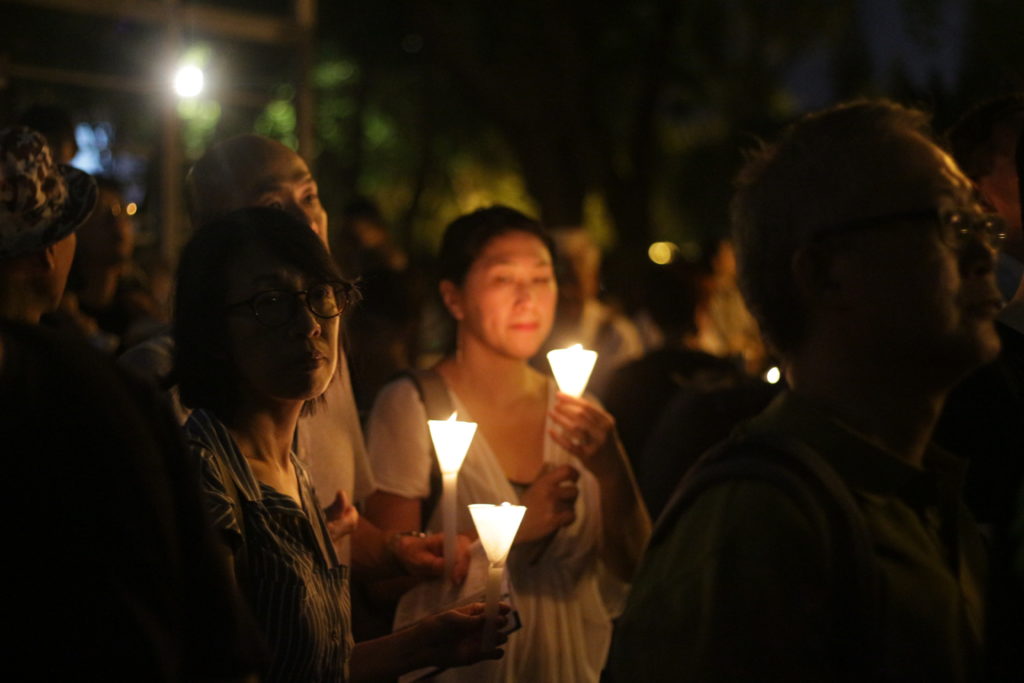
The move to shun the vigil by younger activists has been driven, to a large extent, by a rise in anti-China sentiment following the 2014 Umbrella movement.
Dismayed with the lack of progress on political reform in the city, many young Hongkongers have voiced disagreement with the vigil’s main message of democratization in China, saying the focus should be on Hong Kong.
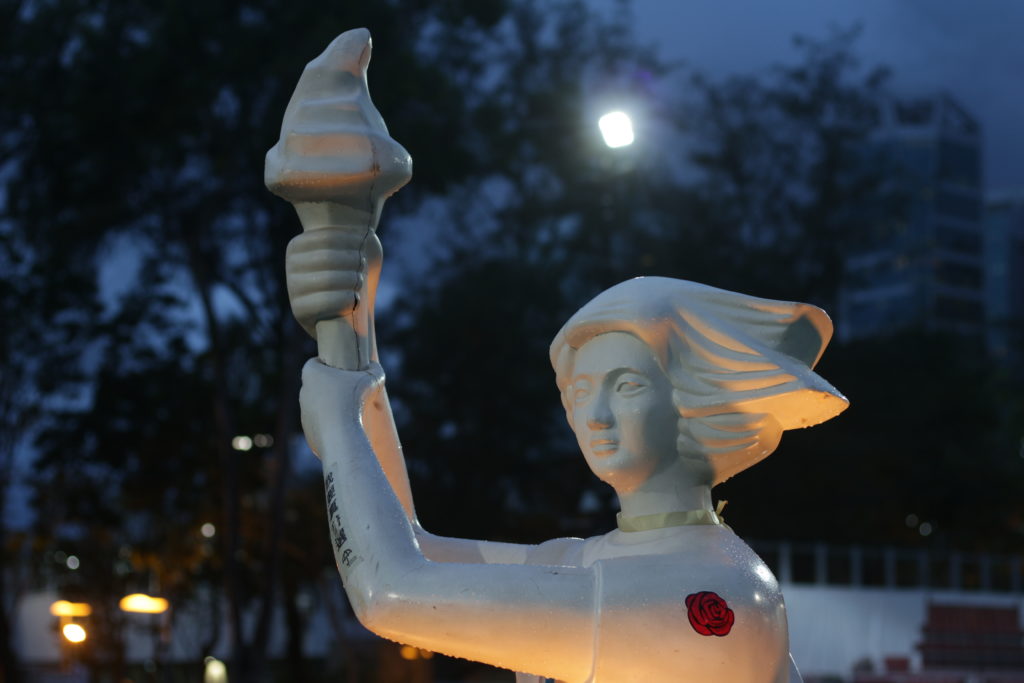
Lee Faulkner, a British expat who lives in Hong Kong who was attending his sixth candlelight vigil, called such attitudes misguided.
“The people who died in 1989 were the same age as them, they looked like them, they smelt like them, they were exactly the same as them,” he said.
He told Coconuts HK that it was important to attend this event because “Communist Party is trying to airbrush it out of history, and we have to make sure they don’t succeed.”
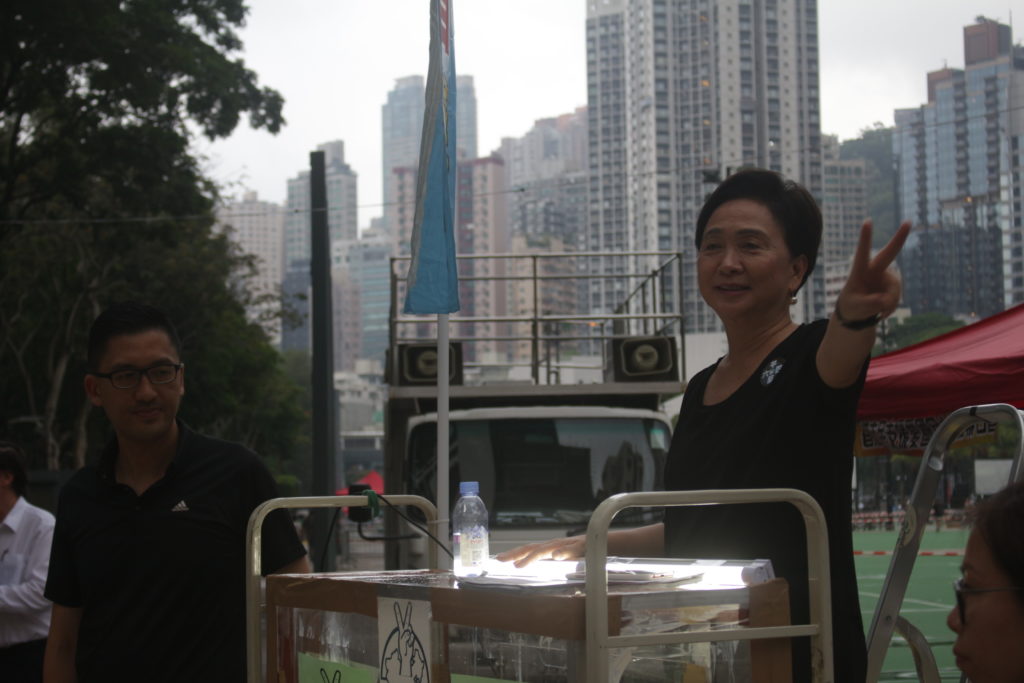
A public opinion poll by the University of Hong Kong found that the proportion of people who think Hongkongers have “a responsibility to instigate the development of democracy in China” has dropped from 58 percent to 56 percent this year.
The proportion of those who believe Hongkongers do not have a responsibility to do so has climbed steadily since 2014 to 31 percent this year.
Emily Lau, a former lawmaker and chairman of the Democratic Party, told Coconuts HK that she believed most people in Hong Kong wanted to end one-party rule.
She said that commemorating the Tiananmen Square massacre was important to show Beijing and the world that Hongkongers are against the June 4 atrocities, and Hong Kong is still “a free place were people can express their views and gather freely.”

“One day when you see this gathering is not allowed, then you know that this light has been snuffed out, and that would be very tragic,” Lau said.
The importance of making sure the younger generation continue to remember and commemorate June 4 was a prominent theme in last night’s ceremony.
Among presentations was a dialogue between Chan Kin-man — a sociology professor at the Chinese University of Hong Kong and co-founder of Occupy Central — and some student activists on the importance of passing on the significance of the vigil to the next generation.
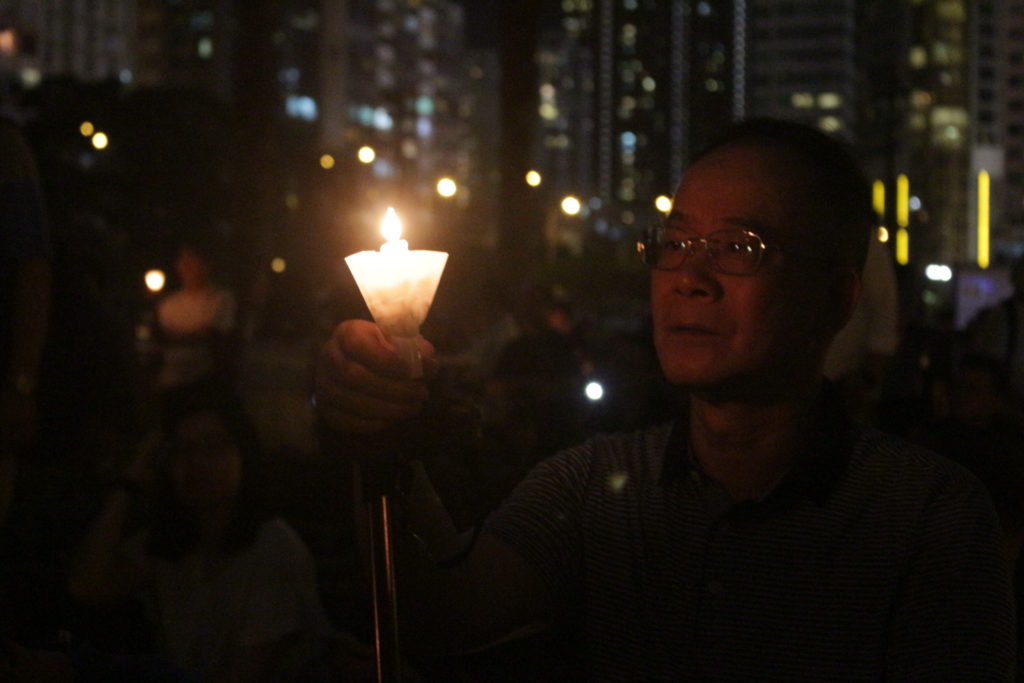
Yip, a 35-year-old secondary school teacher who only gave his last name, brought his three-year-old son, Hong, to the event.
He told Coconuts HK that he has attended the vigil every year since it first began 29 years ago, and that for his son it was his second time.
“I hope that when he’s older he passes this onto the next generation, that he’ll look back at photos and videos of this event and remember why it’s important to come here, why his dad brought him here.”
Twenty-three-year old accountant Samson Wai Wing-sing, who is attending his fourth vigil, told Coconuts HK that he thinks very few people among the young generation understand what happened on June 4, 1989, when the Chinese Communist Party sent in the military to disperse students protesting for democracy who had occupied the famous square for several weeks.
The death toll for crackdown, which saw automatic rifles and tanks turned on unarmed protesters, has been reported as several hundred and possibly more than 1000.
Wai said it was important to keep commemorating June 4 until someone officially apologizes for what happened.
“This movement is such an inspiration for people to remember what happened in Tiananmen Square and recognise that actually a lot of people were killed back in the time, and this fact cannot be erased from the history book and I think that as part of the Hong Kong community I think I have an obligation to stand up.”
“Somebody has to say something about it before they put a period on this whole incidence, because at this point it’s not done yet.”
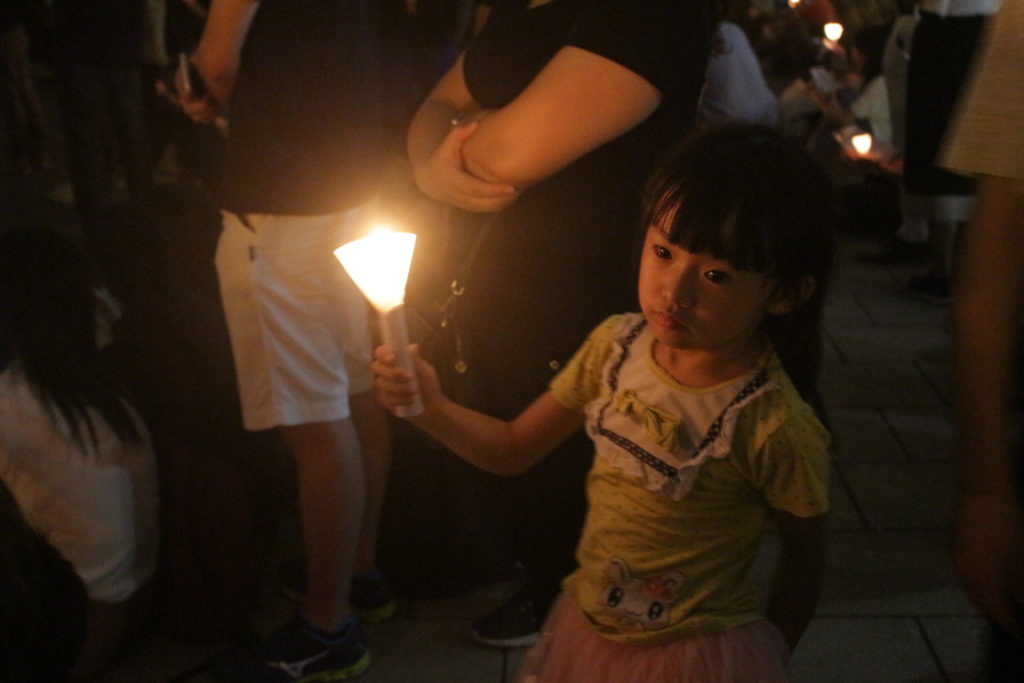
With AFP
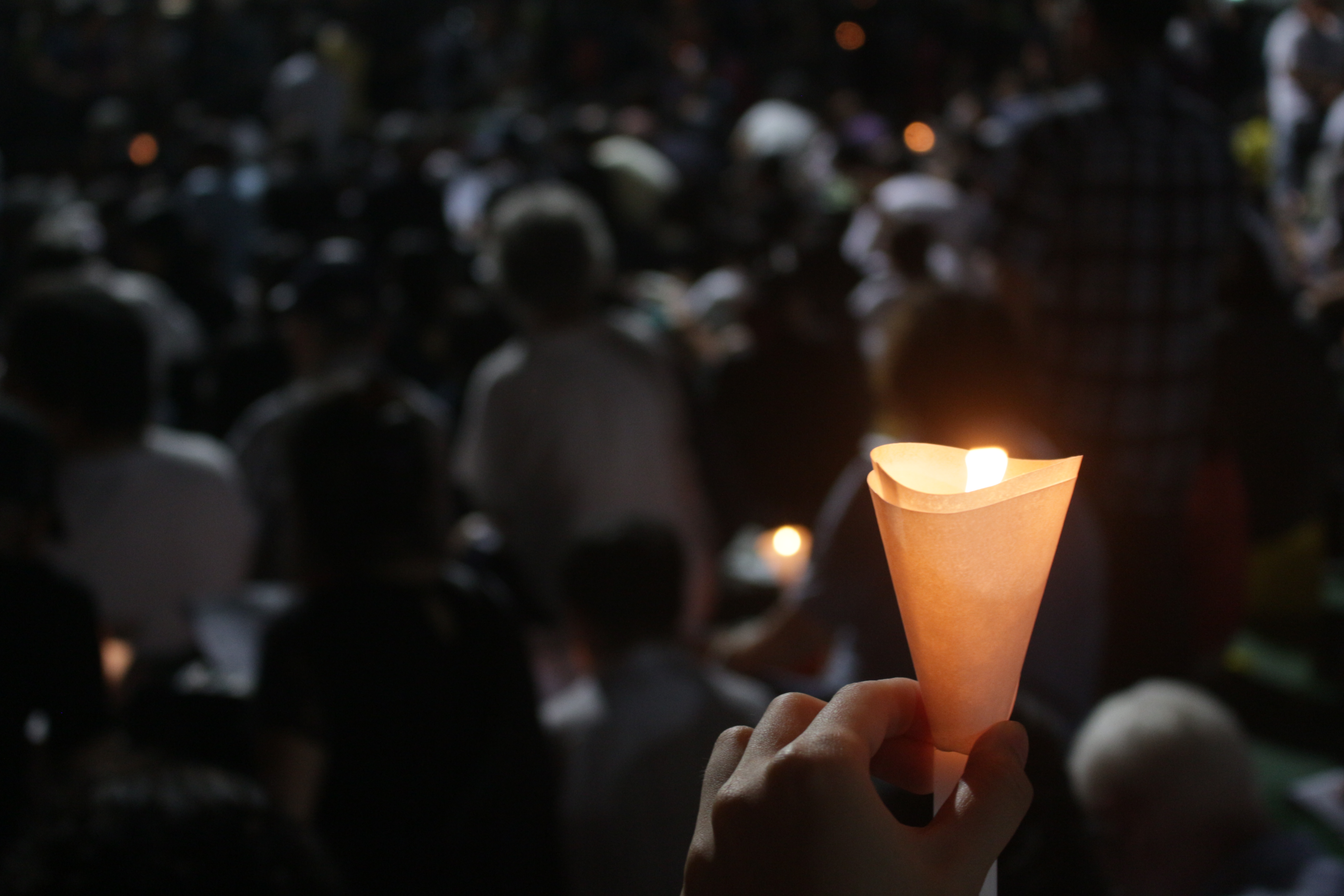




Reader Interactions